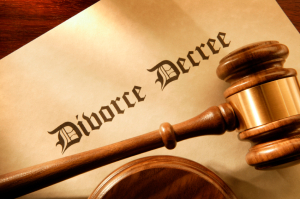Non-marital assets and liabilities are defined in Florida Family Law as 1) assets acquired and liabilities incurred by either party prior to the marriage, and assets acquired and liabilities incurred in exchange for such assets and liabilities; 2) Assets acquired separately by either party by noninterspousal gift, bequest, devise, or descent, and assets acquired in exchange for such assets; 3) All income derived from nonmarital assets during the marriage unless the income was treated, used, or relied upon by the parties as a marital asset; 4) assets and liabilities excluded from marital assets and liabilities by valid written agreement of the parties, and assets acquired and liabilities incurred in exchange for such assets. See Fla. Stat. § 61.075(6)(b)(1-4).
In a dissolution of marriage case, the court must set apart each spouse’s non-marital assets and liabilities and marital assets and liabilities and must begin with the premise that the distribution should be equal absent justification for unequal distribution pursuant to factors under the statute. See Fla. Stat. § 61.075(1). Assets acquired before marriage are not marital assets and remain the property of the owner spouse in the absence of evidence of a gift or conveyance of the assets to the owner’s spouse. See Moss v. Moss, 829 So.2d 302 (Fla. 5th DCA 2002); see also Canakaris v. Canakaris, 382 So.2d 1197 (Fla. 1980). Essentially, the court in Horton v. Horton, 433 So.2d 1386 (Fla. 5th DCA 1983) stated:
“When a marriage partner brings his or her own property to the marriage and does not make a transfer of the asset or any portion of it to the spouse then that asset remains separate property. Upon dissolution of the marriage the asset is still owned by the original owner. Unless the asset, or a portion of it, is awarded as lump sum alimony then the court must recognize the proper ownership of the property and not take it from the owner.”
 Jacksonville Divorce Attorney Blog
Jacksonville Divorce Attorney Blog








